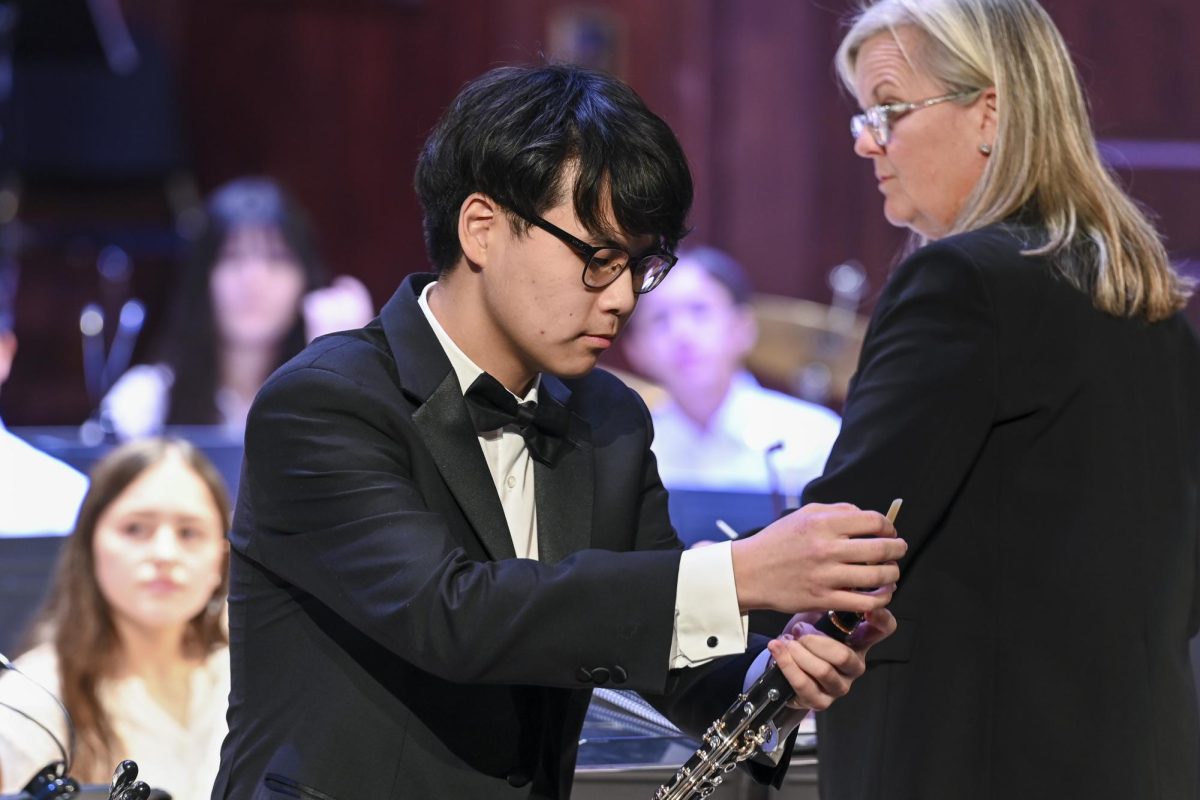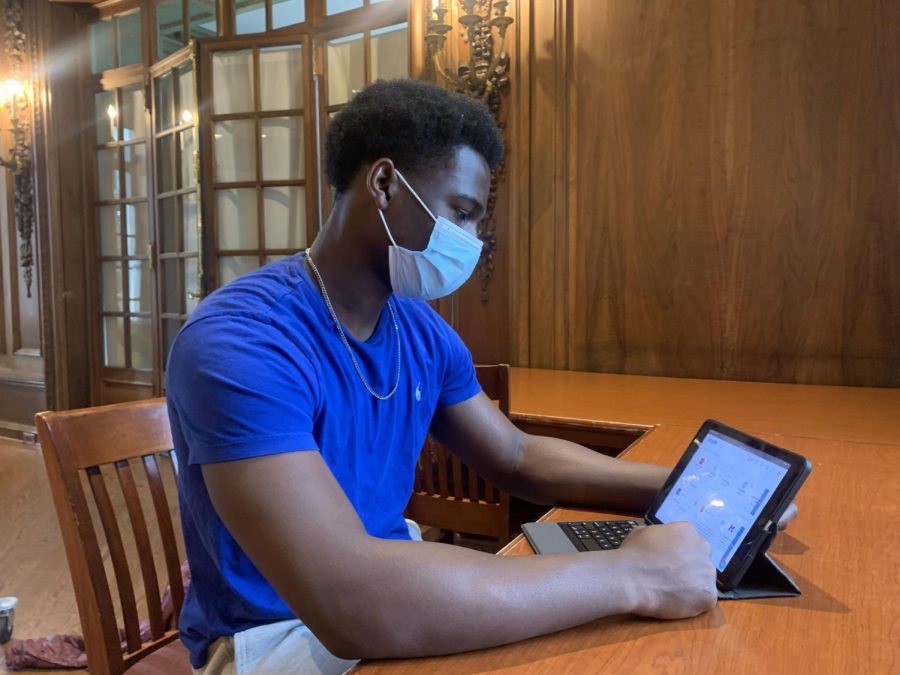College Admissions: Dissected Within the Pandemic and the Future It Reveals
Photo by Ambika Gupta
April 13, 2021
The pandemic opened a floodgate to many challenging, long brushed aside topics, like equity within the college admissions process. Some of which were remedied within COVID-19 ramifications, and these adjustments have and will continue to affect admission into higher education.
Standardized testing has been criticized even before the pandemic due to the link between scores and the test taker’s respective family incomes, opening debate to possible equity issues. Last admission season, many schools implemented test optional policies, and these policies were extended into this year as well. These changes result in more weight being placed upon grade point averages and the rigor of academic courses taken. However, the longevity of this decision will depend on each college’s situation, such as the volume of applicants they received. Mia Rodgers, Associate Dean of College Counseling, reported that NYU received more applications than Harvard this year, which she believes is a consequence of the test optional policies.
As test optional practices are further implemented, universities are not only allowing for test optional applicants but are even accepting them. Mr. Wetherbee mentioned how Tufts and Vanderbilt, “two test sensitive schools,” admitted half of their applicants who did not submit test scores in the early decision round.
However, the Early Decision round typically accepts more students than the Regular Decisions due the fact that those accepted in early decision are binded to attend the school which thus ensures higher yield, the percent of accepted students who choose to attend that school, which affects a school’s overall rankings. Furthermore, the pandemic has caused financial instability which will most likely result in schools accepting even more of their student body in the Early Decision phase, as they did during the Great Recession, because it secures a student body due to the element of unknown and insecurity.
Though within Early Decision are unforeseen obstacles for those of a lower socioeconomic strata, this is due to the fact the Early Decision acceptances are binding. These binding relationships limit a student’s ability to compare financial aid and scholarships with other schools. Furthermore, the Early Decision speeds up the college admissions process thus those who have access to a college counselor benefit greatly since the college applicant process must be sped up in order to apply in Early Decision.
The future on test optional policies will depend on how students now perform who were accepted without test scores.Ben Wetherbee, Associate Dean of College Counseling, reports that NACAC, the National Association for College Admission Counselors, determined that 64% of the colleges that moved to test optional policies plan to keep it that way permanently.
Besides the debate on whether or not to continue to implement test optional practices lies the debate about the relevance of the tests themselves. According to the University of Chicago Consortium on School Research, standardized test scores don’t predict college success, to the extent that is widely believed. In fact, grade point averages are five times stronger at producing accurate predictions than ACT scores.
Another drastic change occurred within the college recruitment process. Normally, LFA has around 200-250 college representatives visit which allow LFA students to meet and possibly form personal connections. This year, those meetups have been replaced with Zoom calls. Though zoom can never fully replace an in person event, Ms. Rodgers believes that “personality [of a school] can still be seen” within the Zoom and even offers some advantages. On the screen, each person’s name is listed in the square on the screen, guaranteeing that college representatives will not forget names during the meeting and possibly remember them more clearly after being presented with them for a longer period of time. Also, presenting demonstrated interest within a school will be more accessible due to the lack of transportation issues which will offer a large advantage to those who attend meetings for schools that track demonstrated interest. These virtual meetings will likely continue in tandem with in person meetings, once COVID-19 restrictions allow.
Moreover, LFA students are able to meet face to face their college counselors. Akin Aboyade-Cole, a junior just beginning his journey into college admissions, started meeting with his counselor in the beginning of second semester once a cycle once in person education began again. He remarks how testing optional policies make the process “easier” and how the COVID-19 changes caused “less stress.”
Mr. Wetherbee acknowledged the ever changing citation: “Every year, so much has changed. I don’t think any more can change. Every year, I’ve been proven wrong.”







































